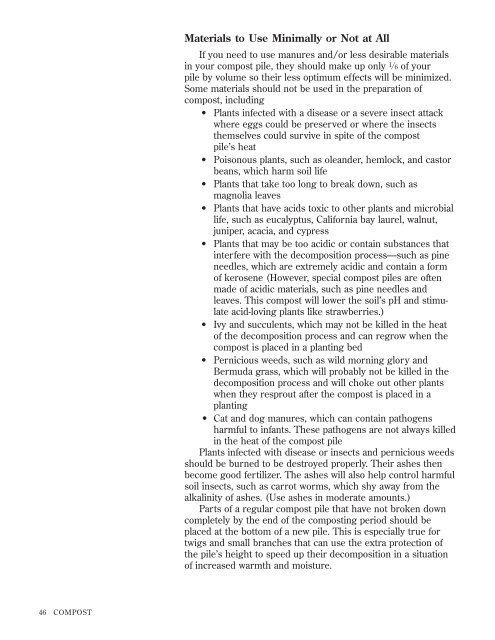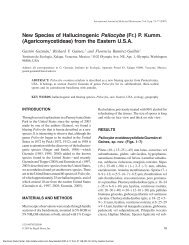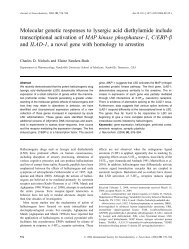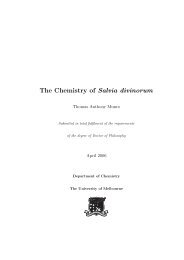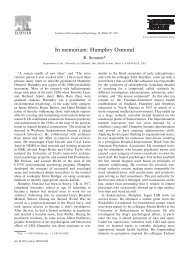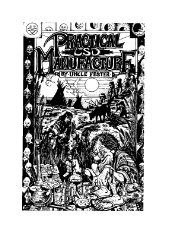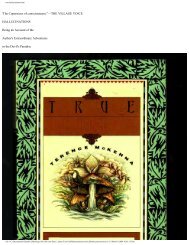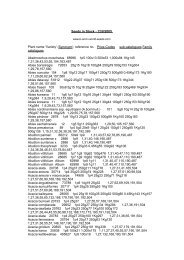How to Grow More Vegetables : And Fruits, Nuts ... - Shroomery
How to Grow More Vegetables : And Fruits, Nuts ... - Shroomery
How to Grow More Vegetables : And Fruits, Nuts ... - Shroomery
You also want an ePaper? Increase the reach of your titles
YUMPU automatically turns print PDFs into web optimized ePapers that Google loves.
46 COMPOST<br />
Materials <strong>to</strong> Use Minimally or Not at All<br />
If you need <strong>to</strong> use manures and/or less desirable materials<br />
in your compost pile, they should make up only 1 ⁄ 6 of your<br />
pile by volume so their less optimum effects will be minimized.<br />
Some materials should not be used in the preparation of<br />
compost, including<br />
• Plants infected with a disease or a severe insect attack<br />
where eggs could be preserved or where the insects<br />
themselves could survive in spite of the compost<br />
pile’s heat<br />
• Poisonous plants, such as oleander, hemlock, and cas<strong>to</strong>r<br />
beans, which harm soil life<br />
• Plants that take <strong>to</strong>o long <strong>to</strong> break down, such as<br />
magnolia leaves<br />
• Plants that have acids <strong>to</strong>xic <strong>to</strong> other plants and microbial<br />
life, such as eucalyptus, California bay laurel, walnut,<br />
juniper, acacia, and cypress<br />
• Plants that may be <strong>to</strong>o acidic or contain substances that<br />
interfere with the decomposition process—such as pine<br />
needles, which are extremely acidic and contain a form<br />
of kerosene (<strong>How</strong>ever, special compost piles are often<br />
made of acidic materials, such as pine needles and<br />
leaves. This compost will lower the soil’s pH and stimulate<br />
acid-loving plants like strawberries.)<br />
• Ivy and succulents, which may not be killed in the heat<br />
of the decomposition process and can regrow when the<br />
compost is placed in a planting bed<br />
• Pernicious weeds, such as wild morning glory and<br />
Bermuda grass, which will probably not be killed in the<br />
decomposition process and will choke out other plants<br />
when they resprout after the compost is placed in a<br />
planting<br />
• Cat and dog manures, which can contain pathogens<br />
harmful <strong>to</strong> infants. These pathogens are not always killed<br />
in the heat of the compost pile<br />
Plants infected with disease or insects and pernicious weeds<br />
should be burned <strong>to</strong> be destroyed properly. Their ashes then<br />
become good fertilizer. The ashes will also help control harmful<br />
soil insects, such as carrot worms, which shy away from the<br />
alkalinity of ashes. (Use ashes in moderate amounts.)<br />
Parts of a regular compost pile that have not broken down<br />
completely by the end of the composting period should be<br />
placed at the bot<strong>to</strong>m of a new pile. This is especially true for<br />
twigs and small branches that can use the extra protection of<br />
the pile’s height <strong>to</strong> speed up their decomposition in a situation<br />
of increased warmth and moisture.


